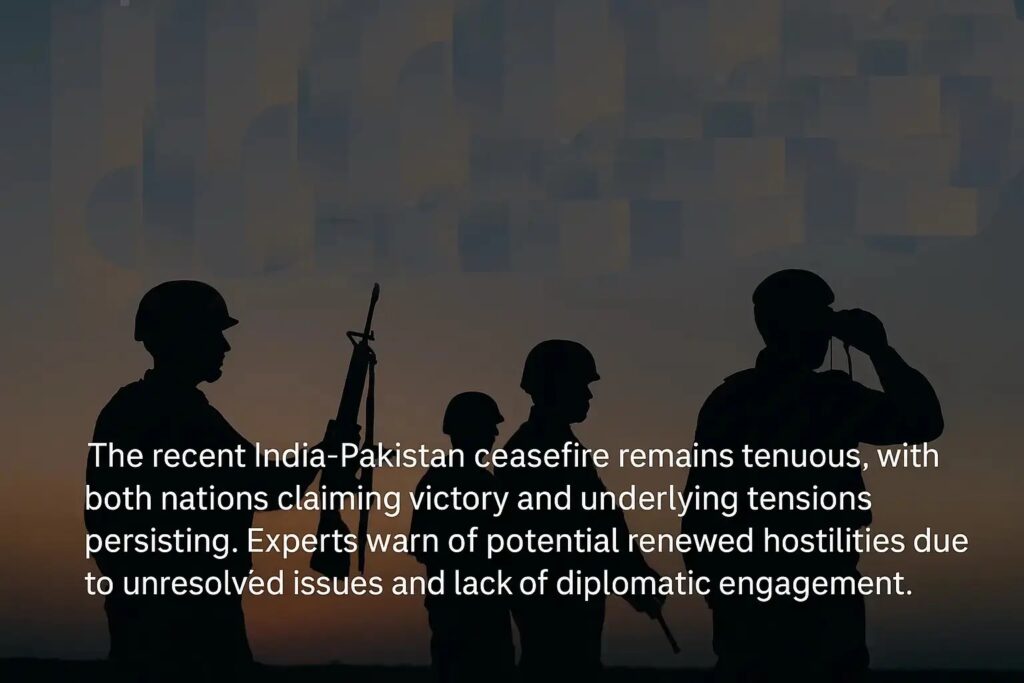A Fragile Peace: The Current State of the India-Pakistan Ceasefire
Following a brief yet intense period of cross-border hostilities involving drones and missile strikes, India and Pakistan agreed to a ceasefire on May 10, 2025. This truce, brokered with the assistance of the United States, has managed to hold thus far, albeit with underlying tensions and mutual distrust.
Mutual Claims of Victory and Ongoing Tensions
Both nations have declared victory in the recent skirmishes. Indian Prime Minister Narendra Modi emphasized that military operations against Pakistani terror groups are ongoing, suggesting the ceasefire is merely a temporary pause. Conversely, Pakistan’s military has regained domestic prestige, with the conflict bolstering its standing within the country.
International Involvement and Diplomatic Strains
The United States played a pivotal role in mediating the ceasefire, with former President Donald Trump announcing the agreement. However, India’s leadership expressed frustration over the unilateral nature of the announcement, perceiving it as an infringement on its sovereignty.
The ceasefire has also reignited discussions around the Kashmir issue on the international stage, challenging India’s longstanding position against third-party mediation in the region.
Domestic Dynamics and the Risk of Escalation
In India, nationalist sentiments have surged, with Prime Minister Modi’s popularity bolstered by the government’s assertive stance. In Pakistan, the military’s enhanced reputation may reduce incentives for de-escalation. The lack of diplomatic engagement, suspended agreements like the Indus River treaty, and closed borders contribute to an environment where renewed conflict is a looming possibility.
The Path Forward: Challenges and Considerations
While the ceasefire has provided a temporary respite, the absence of trust and communication between India and Pakistan poses significant challenges to lasting peace. Analysts caution that without addressing the root causes of tension and establishing robust diplomatic channels, the risk of future hostilities remains high.
Check More:
Gaza aid stalled despite border crossings un
North koreas warship launch mishap sparks kim jong uns outrage

